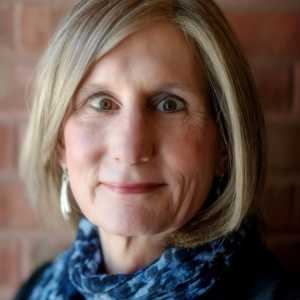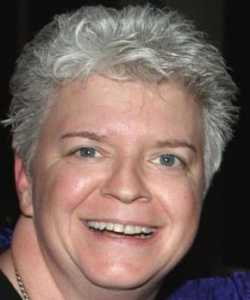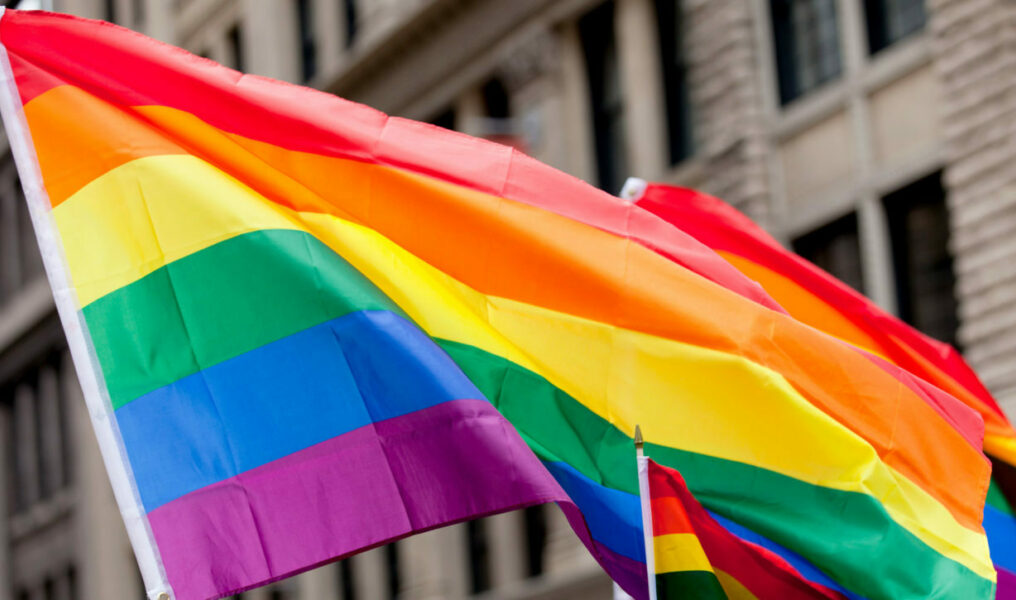Necessary Cancellations
Like Pride festivals across the nation — and the world, for that matter — Kalamazoo Pride swiftly canceled its in-person celebration this past June due to the novel coronavirus pandemic. But without Kalamazoo Pride, OutFront Kalamazoo's most revenue-generating event annually, executive director Amy Hunter would need to use a combination of hard work and creativity to keep the community center afloat. Without a doubt, Hunter is meeting that challenge. And it started by making a lot of phone calls — and, in her words, putting on her thinking cap.
"We closed the office and we canceled Pride," Hunter said. "At first, we were going to move Pride to August, but pretty quickly it became apparent that we needed to cancel our Pride and make it a virtual experience, which we did do. It went OK. We did a Pride Month, and there was a signature online event every Friday of the month of June."
At that point, she said, there wasn't any active solicitation of funds.
"I was able to get some emergency funding through the United Way and also get a PPP [loan], which kept me able to keep all my staff on board," Hunter said. "Some of our normal sponsors for Pride sucked up and gave us at least a percentage of what they normally would sponsor, so that helps out also."

Amy Hunter is the executive director at OutFront Kalamazoo. Courtesy photo.
Not Unusual
Denise Spivak is the CEO of CenterLink, the coalition that supports and connects LGBTQ community centers. According to what she's seen and heard, what OutFront is experiencing is, unfortunately, par for the course.
"Almost 100% of centers were impacted financially by COVID — as were [other] nonprofits and businesses," Spivak said. "It's not a unique position to be in. … Everybody had to cancel fundraising events in one way or another, or reimagine them. So that's what they spent a lot of time doing, while at the same time pivoting their entire operations to serving their clientele online instead of in-person. It was quite the challenge."
Between The Lines asked what she was hearing from individual centers. She called April the first "punch in the stomach."
"Because literally, at that point, if centers had had no intervention at all [and] no money had come through to them at all, a good number of them were facing closing," Spivak said. "I'd say a third within two months and probably half by the end of the year."
Community centers have had to revise their budgets, Spivak said. Because "everything is so unknown," some centers are not able to present a full-year budget; some are experiencing a deficit for the first time; some are budgeting quarterly. And some have been forced to go monthly and make quarterly projections.
Spivak reported that one of CenterLink's fundraising consultants, out of necessity, became "online fundraising experts," all within the span of a month. They've been enormously helpful, she said, advising CenterLink's members on how to transform in-person events to successful online ones.

Denise Spivak is the CEO of CenterLink. Courtesy photo.
Going the Extra Mile
Without a doubt, community centers have been tasked with thinking outside the box while keeping their members safe inside their homes. For OutFront, that's where Hunter's "thinking cap," came in handy, yielding a new peer-to-peer fundraising campaign. Currently underway, it calls upon each board member to choose one area of the center's advocacy and ask at least one other person to be an advocate along with them to help raise funds for that area. That idea came out of Hunter's consultation with some fundraising experts when she shared OutFront's parameters with them.
Still, Hunter is also facing the loss of OutFront's annual winter gala, not to mention having to change up the annual appeal letter. Yet she's not only hopeful this campaign will help make up for the lost gala funds but she also sees a silver lining.
"At the same time [as raising funds], there's another blessing to it, and that is that it engages the community," Hunter said. "The community actively buys into our programmatic work by becoming an advocate rather than just a contributor, and advocate for the work that we do. I think it's a good model."
Excited about what she said will "most definitely" become part of their funding model going forward, Hunter said her board, staff and some of OutFront's bigger supporters are on board, too.
"Hopefully, the pandemic will lessen, flatten out so that we can do an in-person awards gala in the spring that leads into a physical Pride," Hunter said. "But if we can't, we'll do the gala — the awards ceremony — virtually and do Pride virtually again. And I'll scratch my head a lot and knock a lot of doors and make a lot of phone calls to see if we can make up that revenue again."
The Role of Grants
One significant part of a community center's budget generally comes in the form of grants, but as Spivak noted, they're typically program-based and thus can't always be counted on to pay the electric bill or payroll. That is, grants are generally not designed for the kinds of unforeseen circumstances one faces in a global health crisis.
For its part, Spivak said CenterLink has reported being able to provide some pass-through grants at this time.
"I'd say right now, grants are the unknown," Spivak said. "The centers that have grants, there are some funders that have said, 'You know what, don't worry about deliverables, use the money as you need to use it so that the center can keep going and for the services that you need.'"
However, there are other funders, like government funding, who Spivak has called more "hard-core."
"[They say], 'Either do the deliverables or give back the money,' and that's it," she said. "And so the reality of some of those grants where you have to go out and do outreach and you actually have to have people come in and do things — those are really hard to fulfill right now."
What the Future Holds
So far, what Spivak has seen is that most centers that moved to online fundraising have recouped at least some of their losses.
"What I'm hearing, centers have kind of evened out," Spivak said. "They're feeling okay about how the year is going to end up. Some of them are gonna be in a deficit, but certainly not as bad as they thought. Some of them … because they've been able to get COVID-related money for new services they're providing, they might actually come out a little bit ahead. The PPP loans did help a lot for the centers that received them, but really it's 2021 that hangs in the balance."
Quickly approaching the end of their fiscal year, OutFront is one such center faring "OK," according to Hunter.
"I don't know about you, but I've had cabin fever for seven months now," Hunter admitted. "It would be wonderful to come out of the pandemic into a celebration of Pride: pride in who you love and who you are, and pride for the community."
Learn more about CenterLink and its efforts at lgbtcenters.org and OutFront Kalamazoo at outfrontkzoo.org.










